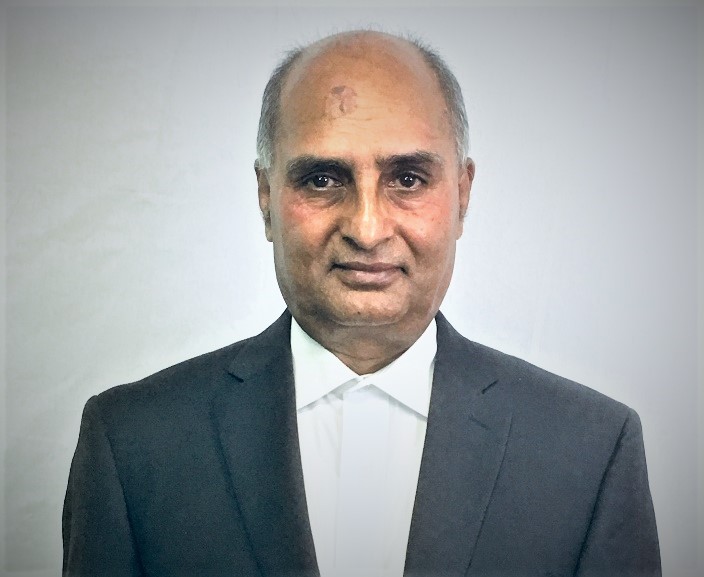

Professor Gopi Upreti
Today, Supreme Court’s three judges, who delivered the historic verdict, must be congratulated for their thoughtful jurisprudential delivery that significantly helps to decriminalize Nepal’s politics. On the surface, it may seem a simple case like any other judicial verdict, but this verdict has far reaching ramification. Criminalization of politics has become an all-pervasive phenomenon in South-Asia, particularly in Pakistan, Nepal, and India.
Everybody’s knows that the release of the Resham Chaudhary has been done with the political expediency undermining the constitution and the criminal law of Nepal.
One can visualize it into two different fronts. In one narrow front, it refers to the direct entry and interference of criminals into provincial state assembly and federal parliament, while on wider front, it refers to interference of criminals into politics either directly or indirectly like financing any candidate, booth capturing, contract killing of rival candidates, providing muscle power services, as well as campaigning or canvassing for any candidate contesting elections. The use of muscle power and compelling tactics are not totally new to Nepal’s electorate and very much so to Indian and Pakistani electorate. This had been a fact of political life in South Asia (Nepal, India, and Pakistan).
On the surface, it may seem a simple case like any other judicial verdict, but this verdict has far reaching ramification. Criminalization of politics has become an all-pervasive phenomenon in South-Asia, particularly in Pakistan, Nepal, and India. One can visualize it into two different fronts.
In a newly found democratic federal republic of Nepal, it is almost impossible to have absolutely clean election in which politicians do not make use of the muscle power of the outlaws to further their electorate prospects, however, the intensity and frequency of such allegations have increased in recent times. It has become quite common for politicians to hire criminals to help them win elections by threats, fear and violence, and booth capturing. This is the reason why they protect such criminals and even reward them with the grotesque misuse of the constitutional power and privilege such as the case of Yog Raj Dhakal (Regal) and Resham Chaudhary by the president, Ramchandra Poudel. If he had some integrity and moral qualm, he could have simply included Regal’s name in the list of 31 others that he declined and returned to Prachanda’s cabinet. Well, it is an open secret that Sher jee, Purna B. jee, Prachanda jee and Narayan jee can do anything but RC, as a president, could have prevented himself from committing such dishonorable act. Such an act, from the high office of presidency, itself fosters the criminalization of the politics.
The most dangerous and disturbing fact is that persons involved in criminal activities have already begun entering parliament and the provincial state assembly. The persons known to have criminal past becoming parliamentarian, and even ministers have not only become common in South Asia but is being openly defended by the party leaders. Moreover, most of the criminals escape on the pretext that they are not convicted by law. Even if they are convicted by lower courts, they appeal to the higher courts and most probably get exonerated. In case if they are convicted, general perception and the most likely scenario is that they will be exonerated by the pardons of the president or the head of the state (For example, Rigal & Resham Chaudhary case) or by government’s withdrawal of the criminal cases (like that of university professor Chalaune case). We will see what happens in the Bhutani Refugee case, Gold Smuggling scandal case and Lalita Nibas cases etc. A national narrative is created to suppress, silence, and deliberately overlook by the political parties and their sycophants intellectuals within the country and abroad.
Supreme Court’s Verdict: A Milestone
This verdict annulling the arbitrary presidential pardon to Yog Raj Dhakal (aka Regal), a murder convict, sets a milestone in the history of Supreme Court’s judicial delivery which requires, henceforth, the consent of the victims to grant pardon by the president. This is a slap in the face of the president, the cabinet and the political party that pursued this grotesque, illegal, and unethical act. This is the milestone verdict of the Supreme Court in the sense that it is a genuine attempt to prevent criminalization of Nepal’s politics. In the past attempts were made to withdraw the case of another criminal politician involved in incineration of murdered victim in the brick manufacturing house. Thanks to the public pressure and vigilance of Nepali press, it was prevented.
We will see what happens in the Bhutani Refugee case, Gold Smuggling scandal case and Lalita Nibas cases etc.
This verdict can have a far-reaching ramification and sets the precedence for similar other cases like that of Resham Chaudhary pending in the Supreme Court. The victim’s spouse had filed the case in the Supreme Court against the release of Resham Chaudhary. Everybody’s knows that the release of the Resham Chaudhary has been done with the political expediency undermining the constitution and the criminal law of Nepal. This fits very well the definition of the criminalization of politics. Supreme Court’s verdict on this case is another curiously watched case. Since this case is still pending, it would be interesting to see if the verdict of this case carries some weight of the precedence of the Regal case.
But for now, my hats off to you (your honors) for your thoughtful jurisprudential delivery to decriminalize Nepal’s Politics.
Professor Upreti is a public intellectual who writes on myriad of themes including political, developmental, and environmental subjects. He lives in Fairfax, Virginia.
Comment